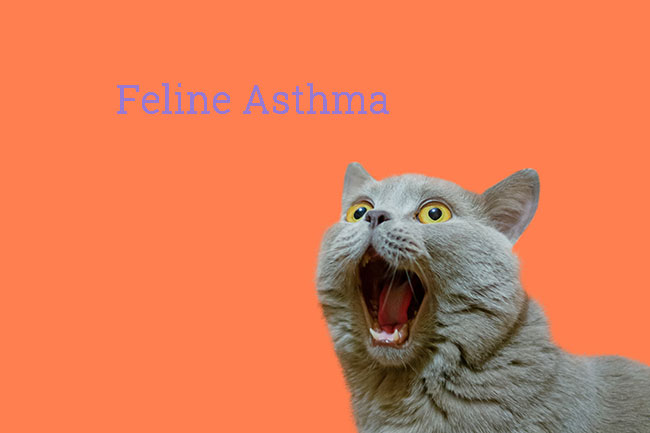 Feline asthma symptoms are very similar to human asthma symptoms. It is a chronic inflammation of the small passageways of a cat’s lungs. Many folks are unaware that human beings are not the only species that are susceptible to asthma. In fact, feline asthma is a serious concern for many cat owners. Just like in humans, asthma in cats can be a very serious problem that can even become life-threatening in serious cases. Here is a look at everything cat owners need to know about this condition.
Feline asthma symptoms are very similar to human asthma symptoms. It is a chronic inflammation of the small passageways of a cat’s lungs. Many folks are unaware that human beings are not the only species that are susceptible to asthma. In fact, feline asthma is a serious concern for many cat owners. Just like in humans, asthma in cats can be a very serious problem that can even become life-threatening in serious cases. Here is a look at everything cat owners need to know about this condition.
What Is Asthma?
An episode of feline asthma may sometimes be discounted as just another hairball or possibly choking on a bit of food. Asthma is the term for chronic inflammation inside the lungs. Just as in humans, an asthma attack in a cat is when the lungs become constricted due to excessive inflammation. In addition, mucus is released into the airways. The combination of the clogging mucus and constricted airways makes it very difficult for cats to breathe when they suffer from an asthma attack.
Feline Asthma Symptoms
If you have a cat that you suspect suffers from asthma, then check for these symptoms to see if you need to seek treatment at Whitworth Animal Clinic. Common symptoms of feline asthma include rapid breathing, wheezing, gasping for breath and open mouth breathing. Some cats will hack up a lot of mucus along with a cough. Cats who suffer from severe asthma will often show an extreme lack of energy. If they become weak enough from chronic asthma, severe asthma attacks could actually kill them.
Even a cat showing one or two of the early symptoms should be examined. Once diagnosed, there are things you can do to help your cat during one of these attacks.
Causes of Asthma
Although it is not always possible to pinpoint an exact cause for asthma, there are many possible culprits. Asthma is usually triggered by an allergic reaction to something in the environment. When a cat is exposed to allergens they can cause allergic reactions in the lung that lead to asthma. Food allergies are also sometimes a cause.
Common Allergens:
- Cigarette smoke
- Mildew or Mold
- Household chemicals
- Dust
- Pollen
- Cat liter particals
Other health problems can also lead to asthma or a worsening of asthma symptoms. For example, heart disease and obesity can help increase the chances of feline asthma developing, and they can also lead to a greater chance of asthma attacks occurring in cats that already have the condition.
Treating Asthma
If you suspect your cat has asthma, then you should bring them into Whitworth Animal Clinic as soon as possible for treatment. There is no need for cats to suffer unnecessarily with this condition. There are medications that Dr. Whitworth can prescribe that will reduce the severity of the asthma and reduce the likelihood of an asthma attack occurring. Don’t let your cat suffer. Get help today for your cat’s asthma.
Read what the American Veterinarian explains about Feline Asthma+






